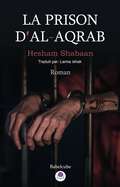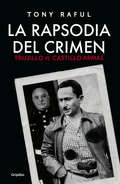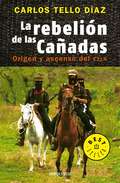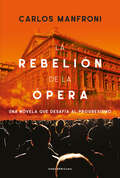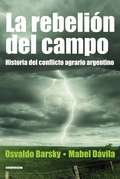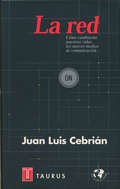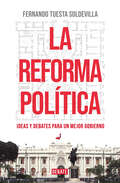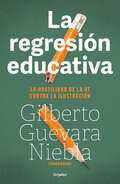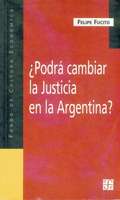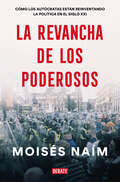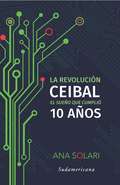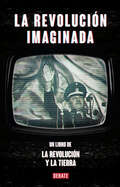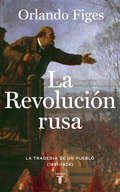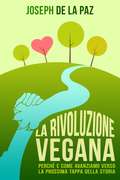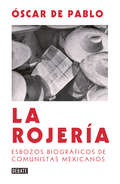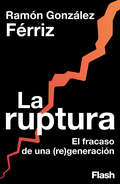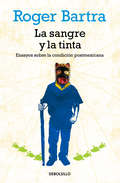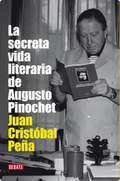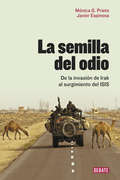- Table View
- List View
La prison d'Al-aqrab
by Hesham ShaabanLe roman 'La prison Al-aqrab' (La prison scorpion) est un mini-roman, qui se déroule à l'intérieur de l’une des prisons les plus protégées d’Egypte, où le jeune homme 'Mohammed Mazloum', qui a été soumis aux conditions dans les bastions de torture les plus célèbres juste parce qu'il est tombé dans une embuscade de sécurité, portant une chemise avec les mots « un pays sans torture ». Le roman raconte des faits réels et l'idée est tirée du cas de ' Titcher', l'un des cas les plus célèbres d'emprisonnement politique en Égypte d’un enfant âgé de 17 ans. 'La prison d’Al-aqrab' enregistre l'état psychologique d'un certain nombre de jeunes égyptiens ces dernières années à la suite des événements politiques successif, et passe en revue les peurs des épreuves momifiées dans l'esprit de nombreux jeunes en raison des conditions tortueuses dans le pays .. L'auteur Hisham Shaaban, a écrit la série d'histoires « l'homme à la abaya » et le roman « Le dernier petit déjeuner », et se prépare actuellement à publier un livre sur les boucs émissaires intitulé « Le Royaume de Pseconia ».
La privatizzazione in Pakistan: Sfide e risposte
by Shahid Hussain RajaQuesto breve e-book è una versione ampliata dell'articolo "Privatizzazione in Pakistan" che l'autore ha scritto poco dopo il suo pensionamento come Segretario Federale del Governo del Pakistan, Ministero delle Privatizzazioni nel 2012. Ha attirato molta attenzione e spinto a scrivere un libro completo sulla storia delle privatizzazioni in Pakistan e su altre questioni correlate, tra cui le prospettive e le sfide che dovrà affrontare a breve e medio termine.
La rapsodia del crimen. Trujillo vs. Castillo Armas
by Tony RafulEl presidente de Guatemala Carlos Castillo Armas fue asesinado el 26 de julio de 1957, por una conjura dirigida por el dictador dominicano Rafael Trujillo Molina, el Generalísimo. Escrito a intervalos angustiantes, reproduciendo el espacio sonoro de los personajes, esta obra reúne toda aquella información que al autor le ha parecido indispensable para explicar la historia de este magnicidio. Dominicano por nacimiento y centroamericano por vocación, Tony Raful transita cómodamente en la historia, hurga en algunos nombres, los revive 60 años después, en un aquelarre centroamericano y caribeño de intrigas y acechanzas, más propio de la ficción, de un obstinado inventario de fábulas y ojerizas. El dictador Trujillo es omnisciente y temido. Su sombra ronda insepulta en esta obra. Es la historia de un ego mayor aupando un crimen, sin ninguna motivación ideológica ni política. Una muerte a destajo para resarcir un orgullo y castigar una ingratitud. Nada es invento. Sobre el apasionante discurrir de la trama del magnicidio aparecen los indicios, las culpas probatorias, las complicidades, los enlaces, los encubrimientos y sobreseimientos jurídicos. El autor sale al encuentro con las pruebas en sus manos, identifica los corolarios delirantes y patéticos, pero no tiene donde llevarlas, está fuera del tiempo. Entonces las vuelca como ofrenda y provocación, para que el relato de aquel crimen vuelva sorpresivo, con la impronta de sus motivos y el brazo largo del Generalísimo Trujillo, a saldar una deuda pendiente con la historia de Guatemala.
La rebelión de Las Cañadas: Origen y ascenso del EZLN
by Carlos Tello DíazLa rebelión de las Cañadas es un libro que documenta el levantamiento del EZLN, uno de los sucesos más emblemáticos de la historia de México a finales del siglo XX. Edición actualizada de un bestseller que generó fuertes reacciones y es hoy un clásico del tema. La rebelión de las Cañadas narra la historia de los indígenas que protagonizaron el levantamiento que estalló en 1994 en Chiapas. Describe las causas que los obligaron a dejar las fincas de Ocosingo, para colonizar la Selva; su relación con la diócesis de San Cristóbal, por medio de los catequistas; su encuentro con la organización político-militar de la que surgió el EZLN, las Fuerzas de Liberación Nacional. El libro, sólidamente documentado con los testimonios de los protagonistas del levantamiento, un bestseller en el momento de salir, es hoy un clásico del tema. El texto de Tello Díaz, publicado por primera vez hace ya cerca de veinte años, fue comentado entonces por Héctor Aguilar Camín con estas palabras: "Carlos Tello Díaz ha emprendido en este libro la más sencilla y la más difícil de las tareas en relación con el alzamiento de Chiapas: reconstruir los hechos, poner fechas y causas a los acontecimientos, nombres y rostro humano a las personas, instituciones, comunidades y movimientos que fraguaron la rebelión. Tello Díaz ha devuelto esa rebelión a la historia para sacarla de la mitología".
La rebelión de la ópera: Una novela que desafía al progresismo
by Carlos ManfroniEsta novela, cargada de suspenso, drama, ironía, romance y también escenas divertidas, mantiene al lector expectante y atento hasta el final. Su mensaje constituye una abierta impugnación al progresismo, al que denuncia como un sistema asfixiante y restrictivo de las libertades civiles. Andrés es un historiador argentino que vuelve a Buenos Aires en 2028 después de pasar diez años detenido injustamente en La Habana. En ese momento, no solo se entera de que sus padres fallecieron -su madre, de covid-, sino también de que el Gobierno de la Ciudad de Buenos Aires está en manos de un partido radicalmente progresista que, entre otras limitaciones a las libertades civiles, prohibió la ópera, vista como un género patriarcal, y clausuró el Teatro Colón, al que utilizan sólo los 28 de diciembre para una triste ceremonia. El Obelisco fue demolido por ser considerado un monumento machista y los nombres de las calles fueron cambiados por apellidos de destacadas personalidades de izquierda o nombres indígenas. Toda la población es vigilada al extremo, hay micrófonos y cámaras incluso en los baños particulares, y se conoce el itinerario de cada habitante de la ciudad. Además, están prohibidas las manifestaciones de amor en la vía pública y no se permiten los nacimientos. En este nuevo contexto, Andrés y su reciente esposa se verán envueltos en una serie de enredos de los cuales intentarán salir con una épica revolución pacifista: la rebelión de la ópera.
La rebelión del campo: Historia del conflicto agrario argentino
by Osvaldo Barsky Mabel DávilaUna explicación rápida pero bien fundada sobre el agudo conflictodesarrollado entre el gobierno nacional y los productores agropecuarios,desde sus profundas raíces históricas. Autoridades gubernamentales, dirigentes de organizacionesrurales y de partidos políticos, comunicadores, han planteado distintasvisiones que muestran el desconocimiento predominante sobre el agroargentino en unos casos y la estrechez de miras en relación a cómoimaginarlo integrado a la sociedad, en otros.«La rebelión del campo» aborda los temas estructurales quecontextualizan y explican el tipo de actores sociales movilizados en elagro, describiendo las consecuencias de los avances tecnológicos en laestructura agraria y las nuevas formas de articulación entre el capitaly la tierra. Contratistas de maquinarias, pequeños y medianosproductores, pools de siembra de diverso tamaño, rentistas, son losprotagonistas de una realidad poco conocida. Igualmente se destacan loscambios en el mercado mundial de alimentos y los impactos sobre laproducción agroindustrial argentina.Se plantean aquí los antecedentes de otros conflictos similares y, desdela agenda de temas propuesta a raíz del enfrentamiento, se analizan lademonización de la soja, la historia y el rol de las retenciones y larelación entre las exportaciones y la provisión de alimentos baratospara la población local. Se describen las características y el papel delas organizaciones agrarias argentinas y las tradiciones ideológicas desectores urbanos en relación con las cuestiones rurales. Finalmente, seofrece una respuesta concreta a la pregunta clave: ¿cuáles son losdesafíos que deberán afrontarse más allá del conflicto si se pretendeconsolidar al sector agroindustrial como un pilar decisivo de laeconomía y de la sociedad?
La red
by Juan Luis CebriánCómo cambiarán nuestras vidas los nuevos medios de comunicación. Esta obra constituye un esfuerzo de divulgación sobre el significado e impacto en nuestras vidas de la llamada sociedad digital. Internet, la televisión temática vía satélite, las innovaciones en educación, medicina y economía, los nuevos medios de comunicación son algunos de los temas aquí tratados. Las consecuencias de su implantación acelerada se dejarán sentir en todos los ámbitos: las relaciones familiares, el comportamiento psicológico de las personas, la organización política, el mundo de los negocios y del comercio, nuestra manera de trabajar y de divertirnos, van a verse modificados sustancialmente. En un lenguaje asequible para los no iniciados, sin apearse del rigor científico, La red abre un debate fundamental: ¿estamos ante un cambio de civilización?
La reforma política: Ideas y debates para un mejor gobierno
by Fernando Tuesta SoldevillaUno de los analistas políticos con mayor credibilidad en el país, gestor e impulsor de la verdadera reforma política Las sucesivas crisis que atraviesa el país subrayan la urgencia de reformas que abarquen todos los estamentos de la actividad política en el Perú. Este libro recopila columnas y artículos periodísticos escritos a lo largo de más de tres décadas, en los que el autor discute propuestas e iniciativas para la aplicación de medidas de corto, mediano y largo plazo en torno, entre otros, al sistema de gobierno y de partidos, el financiamiento de la política, los mecanismos de democracia directa, el diseño de los organismos electorales y el posible retorno a la bicameralidad. Fernando Tuesta Soldevilla, uno de los politógos más lúcidos e informados de la actualidad, ofrece una radiografía detallada de la problemática de nuestras principales instituciones y plantea los derroteros que la clase política debería tener en cuenta para evitar los errores del pasado, pese al incierto y vertiginosoescenario político, social y electoral del país. Los textos de La reforma política son un excelente punto de partida para entender, de una vez por todas, cuál es el origen del descalabro de nuestras organizaciones e instituciones políticas; y, sobre todo, qué alternativas tenemos para que nuestra democracia no solo sobreviva, sino que se fortalezca de cara a un bicentenario en el que verdaderamente haya lugar para la esperanza y el optimismo.
La regresión educativa
by Gilberto Guevara NieblaEsta obra reúne 14 ensayos que analizan críticamente la política educativa del actual gobierno. Aparecen, así, los oscuros balances de la reforma al artículo 3° constitucional, el surgimiento de las universidades Benito Juárez, el nuevo esquema de becas, los recortes en la SEP, el aumento de la desigualdad, el golpe de la pandemia y la asfixia de la austeridad… Entre diciembre de 2018 y julio de 2019 fui subsecretario de Educación Básica. Pero desde mi posición privilegiada fui testigo del impacto brutal de la política de austeridad. También comprobé el estilo autoritario de Andrés Manuel López Obrador. “La educación de México experimenta un retroceso. El gobierno federal actual eliminó la reforma educativa de 2013, pero no produjo un nuevo proyecto; en cambio, puso en práctica políticas que dañan la oferta educativa. El presidente volvió la espalda a la educación persiguiendo un objetivo político, en el sentido populista, mezquino, del término.”
La reina Isabel Tudor: Edición estudiante-maestro (Mujeres Legendarias de la Historia Mundial #4)
by Laurel A. RockefellerLa reina Isabel es quizás el gobernante más legendario y célebre de la historia de Inglaterra. Sin embargo, ¿realmente la conoces tan bien como crees? En esta hermosa biografía narrativa, exploras el camino de Isabel de "Lady Isabel" a "Gloriana" a través del lente de su relación con Robert Dudley, una relación mucho más polémica de lo que la mayoría de la gente cree. La política y la religión chocan, provocando que Isabel se consuele con su música, y una decisión difícil se presenta ante ella mientras los complots contra su vida amenazan su trono. Haz el viaje a Gloriana y descubre un lado de Isabel que nunca supiste que existía. La edición estudiante-maestro incluye preguntas de estudio después de cada capítulo, además de apéndices con seis canciones medievales isabelinas, una cronología detallada y una extensa lista de lecturas sugeridas. Este libro continúa "María Reina delos escoceses".
La república vacilante, entre la furia y la razón
by Natalio BotanaPensar el país La pregunta por las causas de la decadencia argentina coincide con un renovado interés por el estudio de las élites que conformaron, a lo largo de su historia contemporánea, la llamada "clase política". El hilo conductor salta a la vista: a poco que se empieza a desatar la madeja de acontecimientos que precipitaron el descalabro económico-financiero y político-estatal de los últimos tiempos, se descubre que la Argentina está inmersa en una crisis existencial de más profundas y extendidas dimensiones. Esta crisis tiende a ser analizada como el producto, en no menor medida, de la vacancia de proyectos y capacidades en sus élites dirigentes más cercanas, pero también del tipo de formaciones ideológicas que moldearon a las élites tradicionales que sí creyeron tener una cierta idea del país deseado.
La república vacilante, entre la furia y la razón
by Natalio BotanaPensar el país La pregunta por las causas de la decadencia argentina coincide con un renovado interés por el estudio de las élites que conformaron, a lo largo de su historia contemporánea, la llamada "clase política". El hilo conductor salta a la vista: a poco que se empieza a desatar la madeja de acontecimientos que precipitaron el descalabro económico-financiero y político-estatal de los últimos tiempos, se descubre que la Argentina está inmersa en una crisis existencial de más profundas y extendidas dimensiones. Esta crisis tiende a ser analizada como el producto, en no menor medida, de la vacancia de proyectos y capacidades en sus élites dirigentes más cercanas, pero también del tipo de formaciones ideológicas que moldearon a las élites tradicionales que sí creyeron tener una cierta idea del país deseado.
La revancha de los poderosos: Cómo los autócratas están reinventando la política en el siglo XXI
by Moisés NaímUn libro para entender cómo se obtiene, se usa, se abusa y se pierde el poder en el siglo XXI. En todo el mundo, las democracias se enfrentan a un enemigo nuevo e implacable que no tiene ejército ni armada; no procede de ningún país que podamos señalar en un mapa, porque no viene de ahí fuera, sino de aquí dentro. En lugar de desafiar a las sociedades libres con la destrucción desde el exterior, amenaza con corroerlas desde el interior. Un peligro como este es esquivo, difícil de identificar, de distinguir, de describir. Todos lo notamos, pero nos cuesta darle nombre. Se derraman ríos de tinta para definir sus elementos y características, pero se nos sigue escapando. Nuestro deber, por tanto, es nombrarlo para así comprenderlo, combatirlo y derrotarlo. ¿Qué es este nuevo enemigo que atenta contra nuestra libertad, nuestra prosperidad y hasta nuestra supervivencia como sociedades democráticas? La respuesta es el poder, en una forma nueva y maligna. En todas las épocas ha habido una o más formas de maldad política; la que estamos viviendo hoy es una variante vengativa que imita la democracia al tiempo que la socava y desprecia cualquier limitación. Parece que el poder haya estudiado todos los controles concebidos por las sociedades libres durante siglos para eludirlos y, después, contraatacar. Por eso puedo afirmar que estamos ante la revancha de los poderosos. La crítica ha dicho:«En La revancha de los poderosos, Moisés Naím, uno de los observadores más agudos de la política mundial, cataloga exhaustivamente las amenazas a la democracia por parte de dictadores, populistas y empresas durante estos últimos años, y establece paralelos perspicaces a través de ámbitos muy dispares. Una obra importante y oportuna.»Frank Fukuyama «Otro libro original de un pensador original, que ofrece una perspectiva global única sobre el populismo y el poder.»Anne Applebaum«¿Cómo se convirtió el "fin de la historia" en el renacimiento de la autocracia? Moisés Naím aporta su análisis incisivo y su perspectiva global a la cuestión más inquietante del siglo XXI, y muestra cómo el populismo, la polarización y la política de la posverdad han impulsado el ascenso de líderes de Berlusconi a Bolsonaro, de Orban a Erdogan, de Duterte a Donald Trump. Cualquiera que se preocupe por el futuro de la verdad y la democracia debería leer este libro.»Alan Murray, director ejecutivo de Fortune Media «La revancha de los poderosos me recuerda por qué considero a Moisés Naím uno de los pensadores políticos más apasionantes y originales del mundo. Este absorbente libro explora las tendencias, a menudo contradictorias, que están remodelando el poder político, y explica que nuestro futuro depende de cómo se resuelvan. Una lectura imprescindible.»Madeleine Albrigh, ex secretaria de Estado de Estados Unidos «Naím ofrece una visión convincente y accesible del nuevo autoritarismo. Los lectores estarán de acuerdo con que el tema es de urgente preocupación.»Publishers Weekly «Un miembro distinguido del Fondo Carnegie para la Paz Internacional hace sonar las alarmas sobre el ascenso mundial de líderes autoritarios. Un retrato legítimo e inteligente de la expansión global del autoritarismo y sus peligros.»Kirkus Reviews
La revolución Ceibal: El sueño que cumplió 10 años
by Ana SolariEn 1824 Carlos Federico Lecor, Vizconde de la Laguna, procura imponer elorden en la recién creada Provincia Cisplatina, sin poder imaginar quecaerá víctima del embrujo de una hermosa y enigmática gitana quien lerobará el corazón. Todos oímos hablar del Plan Ceibal y es un hecho que las ya famosas ceibalitas tiñeron el paisaje cotidiano uruguayo en los últimos años. Con críticas y múltiples lagos, a nadie resultaindiferente, tampoco a referentes internacionales que han puesto lupa en esta experiencia que comenzó con el emblema un niño, una computadora. Pero ¿de qué se trata realmente? ¿Cuáles eran sus objetivos y a dónde ha llegado? ¿Cambió el mapa educativo del país o es un artificio? ¿Cuánto ha mitigado la llamada brecha digital? ¿Quiénes son sus aliados y cuáles sus resistencias? ¿Cómo ha sido su desarrollo y hacia dónde se dirige ahora? Es un hecho que el Plan Ceibal trasciende largamente el reparto de máquinas. Por eso, a diez años de su creación, la escritora Ana Solari realizó una investigación periodística que pasa raya a su influencia en los centros educativos y, en definitiva, sobre la comunidad, por medio de reportajes que recoge en primera persona, cara a cara con los actores: alumnos, docentes y mentores. Un abordaje «sobre el terreno» de esta «experiencia transformadora del enfoque pedagógico en Uruguay a través de la tecnología».Ceibal apoya esta iniciativa periodística que es una entre muchas posibles, en el empeño de dar a conocer su labor en permanente cambio.
La revolución imaginada: Un libro de La revolución y la tierra
by Gonzalo Benavente Secco Grecia Barbieri RodríguezEl libro basado en el documento más visto en el Perú La revolución y la tierra Desde su estreno en 2019, La revolución y la tierra, el documental más visto en la historia del cine nacional, no ha dejado de remecer la conciencia histórica y política del país. La película de Gonzalo Benavente Secco obró un doble prodigio: abordó de manera singular el fenómeno de la Reforma Agraria decretada por Juan Velasco Alvarado, enfocándose en las luchas por las ciudadanías, y rindió un tributo a los imaginarios del cine peruano. La revolución imaginada reúne a los artífices de este largometraje, quienes cuentan al detalle desde los orígenes del proyecto, la preproducción e investigación, hasta el laborioso rodaje, la distribución y las reacciones del público y la prensa luego de que el filme se convirtiera en un éxito mediático. El libro incluye un dossier de imágenes referentes a La revolución y la tierra, y recoge además los aportes de figuras del ámbito periodístico, histórico, literario, musical, sociológico, político, antropológico y económico, cuyos abordajes enriquecen el debate sobre la película. Un debate que conduce, sin duda de manera urgente, a reflexionar sobre la memoria de un país fracturado.
La revolución rusa: La tragedia de un pueblo (1891-1924)
by Orlando FigesEl ensayo definitivo y omnicomprensivo sobre lo que el propio autor denomina «el mayor experimento de ingeniería social de la historia». Orlando Figes marca un hito en la historiografía con este ensayo sobre el acontecimiento político más determinante del siglo XX: la toma del poder por el bolchevismo en Rusia. Sin adoctrinar ni manipular, el autor hace emerger ante nosotros el panorama aterrador que presentaba la Rusia de Lenin, retratando al padre del bolchevismo como el genio político y organizativo que fue, pero sin olvidar su carencia absoluta de escrúpulos políticos, derivada de la interpretación que hacía del marxismo. Su personalidad obsesiva y sectaria resulta determinante para comprender lo acontecido en Rusia a partir de abril de 1917, cuando volvió allí gracias al permiso otorgado por el estado mayor alemán. Figes nos muestra a un Lenin cuya obstinación rayaba en la histeria cada vez que un momento de crisis política ponía sobre la mesa la cuestión del poder, lo único que, en realidad, le importaba. Entrelazando sutilmente las esferas pública y privada, Figes se inscribe en las corrientes historiográficas que, más allá de las trayectorias de los líderes o en las estructuras generales, hacen hincapié en las vidas de la gente de a pie. Así, saca a la luz una realidad social sobrecogedora, fruto de un proceso histórico que alteró radicalmente la trayectoria de un pueblo. Sirviéndose de la prensa, los diarios personales y la correspondencia de esas personas que hasta ahora han permanecido en la sombra, Figes relata de un modo apasionante los grandes hitos de la Revolución, al tiempo que nos brinda una estremecedora imagen de la vida cotidiana. Reseñas:«Uno de los trabajos más ambiciosos sobre esta época clave del siglo XX.»El País «Orlando Figes ha escrito un gran libro de historia. Hay temas [...] en los que el nivel alcanzado por la historiografía [...] hace muy difícil marcar un hito. Figes lo ha logrado en el caso del acontecimiento político más determinante del siglo XX: la toma del poder por el bolchevismo en Rusia.»Revista de Libros «La obra de Figes resulta especialmente interesante porque se fundamenta de la manera más sólida en las propias fuentes rusas y al ser algunas de éstas procedentes de personajes particulares permite adentrarse en la psicología de los millones de protagonistas y víctimas de la revolución más relevante del siglo XX.»César Vidal, Libertad Digital «El relato más conmovedor de la Revolución Rusa desde Doctor Zhivago.»The Independent «Dudo que haya alguien en el mundo que conozca la Revolución tan bien como lo hace Figes. [...] Combina el poder dramático, la narrativa absorbente y la erudición magistral - un magnífico tour de force.»Sunday Telegraph «Un libro atractivo y bien documentado [...]. Se mantendrá durante tiempo como un estándar de la erudición histórica.»The New York Times Book Review «Pocos historiadores tienen el coraje de atacar grandes temas; menos tienen la agudeza para lograrlo [...]. La revolución rusa hará más por ayudarnos a entender la Revolución Rusa que cualquier otro libro que conozca.»The London Review of Books «Este libro no es sólo una historia; es un artículo de historia.»The Independent on Sunday
La rivoluzione vegana: perché e come avanziamo verso la prossima tappa della storia
by Federico Renzi Joseph de la PazSei interessato al veganismo? Ti interessano gli animali? Sei preoccupato per la situazione mondiale? Vuoi sapere il motivo per cui il veganismo è il fenomeno più significativo della nostra epoca? Vuoi conoscere come sta cambiando il mondo? In questo libro emozionante e sorprendente, potrai scoprire: • una gamma completa di ragioni e vantaggi per cui sempre più persone sono oggi interessate al veganismo • informazione scientifica sulla salute, la psicologia, la sociologia, l'economia, la biologia e l'ecologia • perché il veganismo è più di una dieta e anche più di una filosofia • come sta cambiando la nostra percezione della salute pubblica, dei diritti degli animali e dell'ecologia • come si sta espandendo nel mondo il veganismo • una visione del futuro vegano che ci riguarda "Non c'è niente al mondo più potente di un'idea il cui tempo è venuto." (Victor Hugo) "Questo libro nasce per dare voce, argomenti e dati a una profonda convinzione interiore che abbiamo milioni di vegani e vegane di tutto il mondo. Questo è il cammino e non si può più tornare indietro". (Joseph de la Paz) Dopo le opere di Peter Singer, Gary Francione, Will Tuttle, Melanie Joy e Nick Cooney, arriva questa magnifica esposizione di quello che potrebbero significare il veganismo per l'umanità. Scopri il legame tra la liberazione animale, la liberazione umana e la liberazione del pianeta. Joseph de la Paz (Barcellona, 1973) è un educatore e attivista con studi accademici nel campo delle scienze politiche, la sociologia, la psicologia e la nutrizione. É sposato e padre di due bambine. Co-fondatore del neo nato Partito Vegano appena creato in Israele, musicista e viaggiatore instancabile viaggiatore, apporta un rinfrescante approccio multidisciplinare per analizzare e comprendere il fenomeno più interessante, emozionante e decisivo del XXI secolo: il veganismo.
La rojería: Esbozos biográficos de comunistas mexicanos
by Óscar De PabloEl marxismo asevera que la historia de la humanidad es la historia de la lucha de clases. De ser así, la historia de cualquier nación en el siglo XX puede reflejarse en el devenir de su movimiento comunista. Y una manera particularmente entrañable de relatar la vida del comunismo mexicano es seguir el rastro biográfico de sus protagonistas. ¿Quiénes eran las personas detrás de las siglas y los programas? ¿De dónde provinieron, qué sacrificios hicieron, qué errores cometieron? En sus diferencias y claroscuros -en sus valentías y mezquindades- empujaron tanto la soberanía como el internacionalismo, los derechos para los trabajadores y las instituciones para controlarlos, las libertades individuales y los mecanismos que las sofrenaron. Ayudaron a definir, en suma, el rostro de la izquierda en el país y la idea misma de México. Los casi 150 esbozos biográficos aquí reunidos pueden consultarse como entradas independientes de un diccionario o bien leerse como un relato continuo, poblado de batallas. En cualquier caso, el diálogo entre ellos ilumina una parte clave de nuestro siglo XX.
La ruptura: El fracaso de una (re)generación
by Ramón González FérrizUn relato sobre polarización política y amistades rotas contado por uno de sus protagonistas Hace poco menos de una década, la economía española estaba devastada por la crisis, se había iniciado el procés y comenzaba a generarse el malestar que transformaría profundamente la política de nuestro país. En ese contexto, un grupo informal de jóvenes amigos —economistas, políticos, periodistas, editores, politólogos— empezaron a compartir ideas y, cada uno en su ámbito, a pensar qué podían aportar a la modernización de España: ¿qué medidas económicas podían sacarnos de una situación desesperada? ¿Cómo deberían ser los partidos y los periódicos para resultar más útiles y eficientes? ¿Cuáles eran las ideas que hasta entonces habían servido a la democracia española pero debían ser sustituidas o renovadas? Este grupo de jóvenes pensó que, a pesar de sus discrepancias, serían capaces de poner en práctica esas ideas. Y en cierto momento eso pareció posible. Pero a partir de 2018, a raíz de la moción de censura que llevó a Pedro Sánchez a la presidencia, ese grupo no solo empezó a disgregarse, sino que muchos de sus miembros se enfrentaron abiertamente y en público, dejando claro que esa vía de modernización era imposible en la España actual, más polarizada y partidista que en cualquier otro momento de las últimas décadas. Esta es la historia.
La ría de los afrancesados
by Ascensión Badiola AriztimuñoLA RÍA DE LOS AFRANCESADOS es una novela ambientada en el Bilbao del último cuarto del siglo XVIII. Un Bilbao con problemas "domésticos", como las inundaciones, la especulación del suelo o la pugna con otras anteiglesias y villas de Bizkaia a cuenta del férreo monopolio que ejerce sobre el puerto. Pero también un Bilbao afectado de lleno por lo que está ocurriendo en Europa. La brisa de las ideas ilustradas, acogidas con esperanza, por lo que suponen de palanca para modernizar el país, atenazado por el absolutismo, no tardará en tornarse en huracán, sumida en el torbellino de la Revolución y la guerra. En este marco, conviven una serie de personajes que representan una amplia gama de posturas y, lógicamente, también de sentimientos. Especialísimo protagonismo adquiere un grupo de mujeres. Aunque de muy diferente clase y condición, todas ellas laboran por abrirse paso en una sociedad que las tiene absolutamente relegadas.
La saga de los Windsor: La pompa y el esplendor de una de las familias reales más emblemáticas de todos
by Cars, Jean desLa verdadera historia de una familia extraordinaria, con sus tragedias y sus dramas personales. La pompa y el esplendor de una de las familias reales más emblemáticas de todos los tiempos. El 11 de diciembre de 1936 el rey Eduardo VIII abdica por el amor de Wallis Simpson, dos veces divorciada. Con su renuncia el hijo mayor del rey Jorge V se convierte en el duque de Windsor. Y es su hermano, que logra sobreponerse con valentía a su tartamudez (El discurso del rey), quien le sucede con el nombre de Jorge VI. De la Inglaterra todavía impregnada por el prestigio de la reina Victoria al largo reinado de Isabel II, de los caballeros con bombín a los Beatles, de la inmensa figura de Churchill al trágico destino de la princesa Diana y después a la boda de Guillermo y Catalina, que sedujo a millones de espectadores, he aquí la extraordinaria saga de un linaje de monarcas, de reinas, de príncipes y de princesas con destinos dignos de las mejores novelas. El historiador francés Jean des Cars, biógrafo de las grandes dinastías de Europa y de sus más ilustres representantes, construye en La saga de los Windsor la trayectoria sentimental de una de las familias reales más influyentes del viejo continente con un estilo documentado y riguroso. La historia personal de cada uno de sus miembros y de cómo en muchas ocasiones tuvieron que renunciar a los dictados de su corazón en favor de la corona. Traición, celos, matrimonios de conveniencia, espionaje, estado, poder, amor, escándalo, ¿qué significa pertenecer a la saga de los Windsor? Reseña:«Gracias a la pluma de Jean des Cars la historia trepidante de la monarquía inglesa, íntimamente ligada a la del siglo XX, se lee como una novela». Blaise de Chabalier, Le Figaro
La sangre y la tinta
by Roger Bartra"La idea de que la identidad nacional mexicana se encuentra en crisis y que estamos entrando en una condición postmexicana sigue siendo pertinente hoy en día; y acaso más que en 1999, cuando se publicó la primera edición de La sangre y la tinta, debido al retorno del PRI al poder en 2012. La llegada de un presidente priísta, en un contexto postmexicano, es un espectáculo fascinante e intrigante. Espero que este libro sirva como una guía que ayude a entender los nuevos avatares de la política mexicana."ROGER BARTRA"Roger Bartra es uno de los pocos intelectuales mexicanos que ha logrado dialogar consigo mismo, desdoblándose en autor y crítico, escritor y lector, sujeto y objeto de su permeable meditación antropológica."RAFAEL ROJAS, Letras Libres
La secreta vida literaria de Augusto Pinochet
by Juan Cristóbal PeñaLa desconocida y oscura vida literaria de Augusto Pinochet "Cada pieza de esta ingente investigación periodística va dando forma al perfil intelectual de quien dirigió Chile durante diecisie¬te años. Lo que aflora es un personaje receloso y obsesivo, con un gran complejo de inferioridad que lo atormentaba. De ahí, como plantea el autor, que el asesinato del general Carlos Prats, el mejor alumno de su generación, haya estado motivado por el resentimiento de un militar enceguecido por el poder.Así se entiende también que mucho antes de protagonizar el golpe de Estado de 1973 Augusto Pinochet haya desarrollado una empeñosa carrera como académico y autor de libros de his¬toria y geografía relevantes para generaciones de militares en Chile. Ese afán por sobresalir lo llevó a escribir un libro como Geopolítica, en el que reprodujo párrafos copiados al pie de la letra de un texto de Gregorio Rodríguez, su profesor en la Academia de Guerra. Desde el joven aprendiz que logró entrar a la Escuela Militar solo después de dos intentos fracasados hasta el coleccionista que creó bibliotecas avaluadas en millones de dólares, surge aquí un hombre a la luz de sus debilidades y al amparo también de una corte de escritores y editores, bibliotecarios y libreros que se empeñaron en forjar su imagen. Con la rigurosidad y el talento narrativo a los que nos tiene acostumbrados, Juan Cristóbal Peña -autor del premiado reportaje «Viaje al fondo de la biblioteca de Pinochet», antecedente de este libro-, logra aquí el retrato íntimo de un dictador.
La semilla del odio
by Javier Espinosa Mónica G. Prieto¿En qué momento se desató el caos e imperó el horror en Oriente Próximo? En La semilla del odio los reporteros Mónica G. Prieto y Javier Espinosa revisan la historia reciente de la región más convulsa del mundo para esclarecer las causas que originaron el conflicto. La invasión ilegal de Bagdad en 2003 y el desgobierno posterior levantó a la población de Irak en armas, pero también resucitó el odio sectario que había permanecido enterrado durante la dictadura de Sadam Hussein. El ascenso al poder de la mayoría chií, reprimida por la minoría suní durante décadas, y la impunidad de los ocupantes alimentó la aparición de una insurgencia nacionalista que en su lucha contra las fuerzas extranjeras se alió con los yihadistas, más proclives a sembrar el terror con atentados suicidas y secuestros que a combatir los soldados de la alianza liderada por EEUU, en la que participó España. El auge de los radicales liderados por el jordano Abu Musab al Zarqaui terminó así por imponer un califato del terror en amplias regiones del país, exportando su agenda a todo Oriente Próximo. En La Semilla del Odio, Mónica G. Prieto y Javier Espinosa realizan un exhaustivo repaso a una década de vivencias en una de las zonas más convulsa del mundo y reconstruyen, mediante palpitantes y estremecedores reportajes, los pasos que llevaron a una región a quedar secuestrada por el Estado Islámico de Irak, origen del ISIS.
La semilla del odio: De la invasión de Irak al surgimiento del ISIS
by Javier Espinosa Mónica G. Prieto¿En qué momento se desató el caos e imperó el horror en Oriente Próximo? En La semilla del odio los reporteros Mónica G. Prieto y Javier Espinosa revisan la historia reciente de la región más convulsa del mundo para esclarecer las causas que originaron el conflicto. La invasión ilegal de Bagdad en 2003 y el desgobierno posterior levantó a la población de Irak en armas, pero también resucitó el odio sectario que había permanecido enterrado durante la dictadura de Sadam Hussein. El ascenso al poder de la mayoría chií, reprimida por la minoría suní durante décadas, y la impunidad de los ocupantes alimentó la aparición de una insurgencia nacionalista que en su lucha contra las fuerzas extranjeras se alió con los yihadistas, más proclives a sembrar el terror con atentados suicidas y secuestros que a combatir los soldados de la alianza liderada por EEUU, en la que participó España. El auge de los radicales liderados por el jordano Abu Musab al Zarqaui terminó así por imponer un califato del terror en amplias regiones del país, exportando su agenda a todo Oriente Próximo. En La Semilla del Odio, Mónica G. Prieto y Javier Espinosa realizan un exhaustivo repaso a una década de vivencias en una de las zonas más convulsa del mundo y reconstruyen, mediante palpitantes y estremecedores reportajes, los pasos que llevaron a una región a quedar secuestrada por el Estado Islámico de Irak, origen del ISIS.
